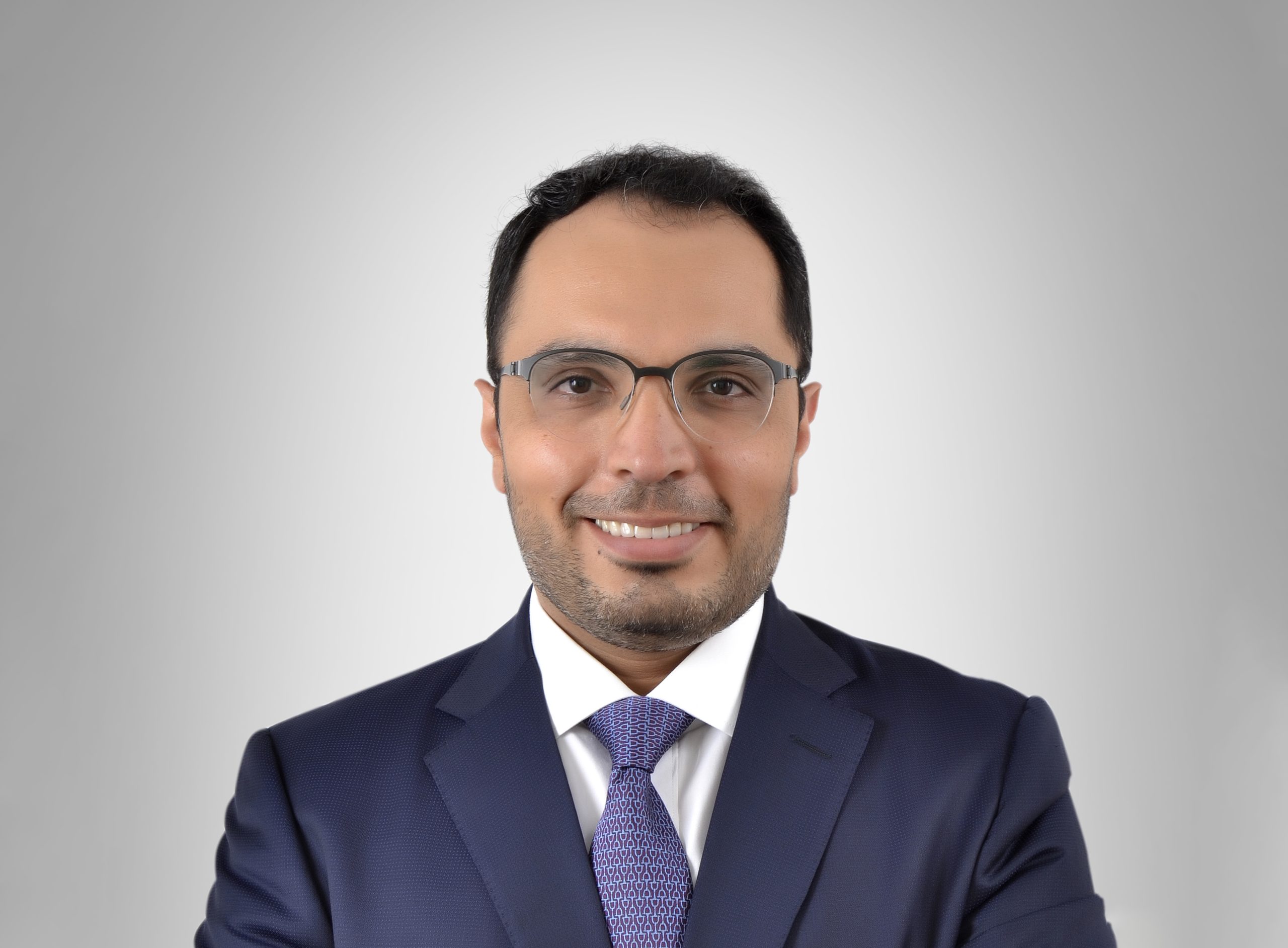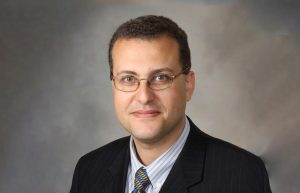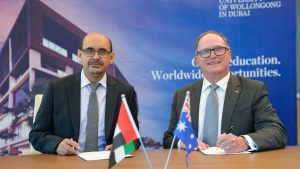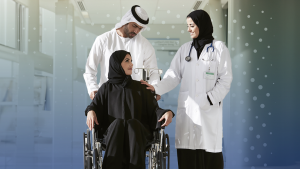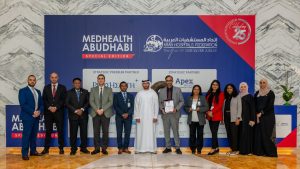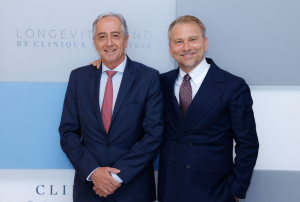In this exclusive interview, Eid Mansour talks about Gilead Sciences’ strategies for enhancing patient care and access to innovative treatments in Saudi Arabia
In a world where healthcare is constantly evolving, it’s inspiring to see companies like Gilead Sciences leading the charge with innovative solutions that tackle some of our biggest health challenges.
Gilead Sciences recently teamed up with Cigalah Healthcare in a collaboration that will extend through 2026.
This partnership aims to improve patient care and ensure access to essential medicines across the kingdom.
Under this new agreement, Cigalah Healthcare will handle the distribution of Gilead’s products in various therapeutic areas, making innovative treatments more accessible to patients.
Earlier this year, Gilead took a significant step by launching its fully operational affiliate, Gilead Sciences Arabia, which will enhance its connection with healthcare providers and support initiatives tailored to the needs of the local population.
This dedicated presence allows Gilead to better understand and respond to the unique healthcare challenges faced by people in Saudi Arabia.
As part of our commitment to providing insights from industry leaders, we had the privilege of speaking with Eid Mansour, General Manager of Gilead Saudi Arabia.
In this exclusive interview, we explore the strategies behind Gilead’s success, the company’s impact in Saudi Arabia, and the future of healthcare solutions in the region.
Join us as we delve into Eid’s vision for transforming patient care and driving medical advancements across the Kingdom.
Over the past 35 years, Gilead Sciences has been at the forefront of addressing major health challenges. How does the company approach innovation and R&D to ensure it continues to make significant impacts in the ever-evolving landscape of global healthcare?
Gilead Sciences is a research-based biopharmaceutical company, so essentially, we are driven by R&D. We work tirelessly to discover and develop innovative therapeutics to advance the care of patients suffering from life-threatening diseases.
We have the strongest and most diversified pipeline in our history and are on track to achieve our ambition, set in 2019, of delivering 10+ transformative therapies by 2030. From long-acting HIV combinations to some of the most promising targets in cancer treatment, we’re discovering, evaluating and advancing investigational compounds that have the potential to transform care for life-threatening diseases.
Through pioneering science and innovative partnerships, we are continuously expanding our research and development programs to take on pressing unmet needs in virology, oncology and inflammation. As we bring new products into clinical development, our goal remains the same – to discover, develop and deliver innovative therapeutics for people with life-threatening diseases.
Gilead has a history of setting ambitious goals to create a healthier world. As you look to the future, what are some of the most pressing global health challenges Gilead aims to address, and how do you plan to achieve these objectives while adapting to changing healthcare needs?
Our vision at Gilead is to create a healthier world for everyone and our focus remains on putting people at the center of everything we do, prioritizing scientific innovation to develop therapies that help people live longer, healthier lives. By enabling access to medicines, challenging assumptions, fighting stigma, and collaborating with partners worldwide, we work not simply to treat some of the world’s most challenging public health threats – but to eliminate them.
Currently, there are targets set out by the World Health Organization to eradicate Hepatitis C (HCV) and Human immunodeficiency viruses (HIV) – both areas in which we have been pioneers for decades.
Our research efforts in these areas have led to significant advancements in treatment such as Direct-Acting Antiviral (DAA) for HCV and Anti-Retroviral Therapy (ART) for HIV. We have also made significant strides in reaching low and middle-income countries. Partnering with governments, academia, healthcare professionals, and communities, the impact of our work has been far-reaching, leading to the transformation of millions of lives across the world, and we continue to work towards further developing innovative solutions to reach both local and global goals in these areas.
Oncology is another key focus therapeutic area for us. Cancer remains a leading cause of death worldwide, and we’re driving forward with oncology therapies that aim to change that. We’re relentlessly pursuing greater access and equity and striving to deliver improved outcomes for people with breast, lung, bladder and blood cancers.
Our ability to turn scientific breakthroughs into life-changing therapies has made more than 29 treatments available, and we’re not stopping there. With a robust pipeline in virology, oncology, and inflammation, we’re relentless in our pursuit to transform care for those living with HIV, viral hepatitis, cancer, and other life-threatening conditions. We’re on track to deliver over 10 transformative therapies by 2030, and our research continues to push the boundaries of what’s possible.
- How does the partnership with Cigalah align with Gilead’s long-term strategic goals in the Middle East, particularly in relation to Vision 2030? Can you elaborate on how the Health Sector Transformation Program is expected to influence this partnership’s direction and impact over the next few years? How does the partnership with Cigalah position both companies to respond to emerging healthcare challenges in the region?
Our partnership with Cigalah Healthcare is essential to expanding access to innovative treatments in Saudi Arabia. Through our renewed agreement, we’re leveraging Cigalah’s extensive network to support the Health Sector Transformation Program, a key part of Vision 2030, which aims to enhance healthcare quality and access across the Kingdom.
Earlier this year, Gilead established its fully operational affiliate in the Kingdom, Gilead Sciences Arabia, to facilitate direct access to healthcare providers and enhance patient support. By combining Gilead’s therapies and operational expertise with Cigalah’s local network and extensive knowledge of the Saudi healthcare environment, we are well-positioned to address emerging health challenges and adapt to the evolving healthcare landscape, ensuring that patients in Saudi Arabia receive the highest quality care.
In what ways does the partnership provide opportunities for knowledge exchange between Gilead and Cigalah?
At Gilead, we benefit significantly from this strategic partnership, ensuring the secure and reliable distribution of our innovative therapies across key healthcare institutions in Saudi Arabia. Through Cigalah’s extensive network and deep knowledge of the Saudi healthcare environment, we can enhance patient access to our life-changing medications, aligning with our commitment to improving healthcare outcomes in the region.
For Cigalah, the partnership presents an opportunity to expand its expertise in highly specialized and innovative therapy areas, such as virology, infectiology, and oncology, and to contribute towards the realization of the Health Sector Transformation Program and serve the community in Saudi Arabia.
Together, we are better equipped to meet patient needs and navigate the healthcare landscape effectively. The renewal of this partnership underscores the company’s dedication and is another step towards building a healthier future for all involved.
How will Gilead Sciences Arabia leverage local market insights to tailor its strategies for Saudi Arabia?
The decision to establish our presence in Saudi Arabia at this pivotal moment strategically aligns with both the evolving healthcare landscape in the Kingdom and Gilead’s unwavering commitment to address the significant unmet patient needs.
First and foremost, our patient-centric approach drives everything we do. Patients and their interests are always at the forefront of our mission. We are committed to being closer to our patients, ensuring they have access to innovative medicines that answer their needs.
Establishing a presence in the Kingdom allows us to work more closely with the healthcare system, collaborate with public health officials, community advocates, and healthcare providers, and gain better visibility into patients’ needs. Gilead Sciences and the health authorities in Saudi Arabia have a long-standing partnership and successful track record in tackling major healthcare issues, including HIV and Hepatitis, and more recently Oncology. These strategic partnerships underscore our commitment to raising awareness, knowledge sharing, technology transfer, and clinical research, ultimately improving disease management outcomes and patient quality of life.
In 2022, we signed a Memorandum of Understanding (MoU) with the Saudi National AIDS Program to bridge gaps in HIV care and accelerate progress toward UNAIDS global goals. In the same year, we also signed an MoU with the Ministry of Health to support WHOs global hepatitis elimination goal by enhancing awareness, screening, linkage to care, and patient counseling. More recently, our MoUs with King Faisal Specialist Hospital & Research Centre and the Saudi Oncology Society showcase the country’s capacity for clinical research, medical education, and scientific exchange.
These strategic partnerships facilitate the introduction of scientific breakthroughs and innovative public health approaches to the Kingdom, ultimately improving health outcomes for the Saudi population.
How does Gilead plan to ensure equitable access to its innovative therapies across different regions of Saudi Arabia?
At Gilead, our aim remains to enhance health equity in the Kingdom by working closely with key healthcare stakeholders in the country and to ensure broad access to our innovative therapies. During the COVID-19 pandemic, we implemented a home delivery initiative as part of our Patient Support Program, to ensure treatment continuity for the patients. We are now working towards expanding this program to ensure that patients in remote areas can have access to their treatments. Through ongoing and new collaborations and strategic partnerships, we are committed to making sure that every patient, regardless of their location, receives the care they need.

